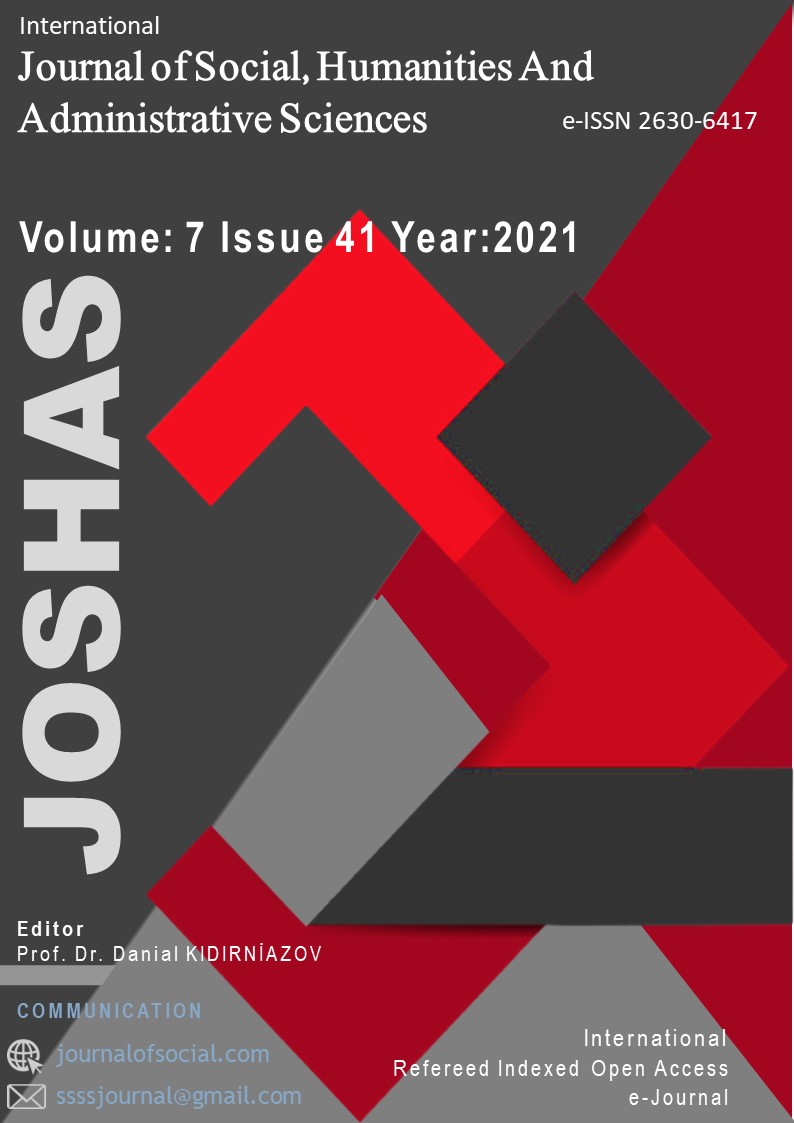Arundhatı Roy’un Küçük Şeylerin Tanrısı Adlı Eserinde Sömürge Kaynaklı Toplumsal Travmalar Ve Bireysel Travmatik Yaşantılar
Author :
Abstract
Edebiyatta travma çalışmaları, mağdurların travmatik deneyim algısını etkileyen karmaşık psikolojik ve sosyal yönleri inceler ve aynı zamanda bu kötü deneyimlerin dile yansıma biçimlerine de değinir. Arundhati Roy’un Küçük Şeylerin Tanrısı adlı eseri karakterlerin yaşadığı travmaları yansıtmaya çalışır. Bu romanda pek çok birey çeşitli travmalara maruz kalmışlardır. Bireylerin maruz kaldıkları bu travmalar ya hayatlarını mahvetmiş ya da ölümlerine sebep olmuştur. Bu romanda travmaların sürekli tekrar etmesi beni Freud’un travma kuramına değinmeye yönlendirmiştir. Freud’a göre travma mağduru kişiler geçmişte deneyimledikleri travmalara benzer olaylar yaşarlar, yakındıkları durum veya olaylar değişmez. Freud ‘a göre bastırılan travmatik yaşantılar daha sonra benzer şekilde yeniden yaşanır. Romandaki farklı sosyo ekonomik sınıflardan gelen bütün bireyler ortak bir noktada birleşmektedirler. Bu nokta yaşadıkları travmatik deneyimlerdir. Freud’un travma çalışmalarından yola çıkarak karakterlerin yaşadıkları travmaları ortak toplumsal travma olan İngiliz sömürgeciliği ile ilişkilendirdim. Nitekim, diğer travma çalışmalarında da kitlesel travmaların hem toplumsal hem de bireysel yansımalarının ele alındığı görülmüştür. Bu makalede, Küçük Şeylerin Tanrısı romanında incelenen çeşitli bireysel ve kitlesel travma biçimleri için ayrıntılı bir analiz yapılmıştır. Ayemenem'de geçen roman, sevgisizlik ve şefkat eksikliği nedeniyle üyeleri ağır bir şekilde acı çeken bir ailenin korkunç çöküşünü anlatmaktadır. Roman, ikizler Rahel ve Estha'nın bakış açısıyla anlatılmaktadır. Roman, din, aşk, öfke, sefalet, hırs, günah ve seks gibi hayatın çeşitli yönlerini incelemektedir. Buna ek olarak, Ipe ailesi için daha fazla soruna yol açan günümüzün bazı sorunlarına da değinmektedir. Bu çalışmanın amacı Küçük şeylerin Tanrısı adlı romanı travma teorisi ışığında incelemek ve romandaki karakterin travmalarına neden olan toplumsal cinsiyet, sosyal sınıf farklılığı, kast sistemi, sömürge geçmişi gibi durumları incelemektir.
Keywords
Abstract
Trauma studies in literature examines the complex psychological and social aspects that affect the victims' perception of traumatic experience, as well as the ways in which such an experience is reflected in language. The God of Small Things attempts to accurately reflect the traumas experienced by the characters. In this novel, many individuals have been exposed to various traumas. These traumas that individuals are exposed to have either destroyed their lives or caused their deaths. The constant repetition of traumas in this novel led me to refer to Freud's theory of trauma. According to Freud, trauma victims experience events similar to the traumas they have experienced in the past, the situation or events they complain about do not change. According to Freud, repressed traumatic experiences are then relived in similar ways All individuals from different socio-economic classes in the novel unite at a common point. This point is their traumatic experience. Drawing on Freud's trauma studies, I associated the traumas of the characters with the common social trauma of British colonialism. As a matter of fact, it has been seen that both social and individual reflections of mass traumas are discussed in other trauma studies. In this article, a detailed analysis is made for the various forms of individual and mass traumas in the novel God of Small Things. Set in Ayemenem, the novel chronicles the terrible downfall of a family whose members suffer severely as a result of a lack of love and compassion. The novel is told from the perspective of the twins, Rahel and Estha. The story explores several facets of life, including religion, love, anger, misery, ambition, temptation, and sex. In addition to this, the story touches on some modern-day difficulties that lead to more troubles for the Ipe family. The aim of this study is to examine the novel in the light of trauma theory and to examine the situations such as gender, social class difference, caste system, colonial history that cause the traumas of the character in the novel.
Keywords
- Balaev, M. (2014). Contemporary Approaches in Literary Trauma Theory. London, Palgrave Macmillan.
- Balaev, M. (2014). Contemporary Approaches in Literary Trauma Theory. London, Palgrave Macmillan.
- Caruth, C. (1996). Introduction: The Body and The Voice. In Unclaimed Experience Trauma, Narrative, and History, Baltimore, John Hopkins UP.
- Clarke, Anna. (2007). Language, Hybridity and Dialogism in The God of Small Things. In Tickell, Alex (Ed.), Arundhati Roy's The God of Small Things (pp. 132-141), New York: Routledge
- Dumont, L. (1996). Homo Hierarchicus: The Caste System and its Implications. Oxford University Press. Herman, J. L. (1997). Trauma and Recovery. New York, Basic Books.
- Roy, A. (1998). The God of Small Things. New York, Flamingo.
- Roy, A. (2015). Field Notes on Democracy: Listening to Grasshoppers. In Field Notes on Democracy: Listening to Grasshoppers. Chicago, IL: Haymarket Books.
- Said, E. (1994), Culture and Imperialism. New York, Knopf.
- Shirwadkar, M. (1979). Image of Woman in the Indo-Anglian Novel. New Delhi, Sterling.
- Van Der Geugten, D., & Henckens, M. (2018). Trapping Traumatic Memories; Trauma Encoding- andRetrieval-induced Neural Activity Reflecting Susceptibility to Posttraumatic Stress Disorder. https://doi.org/10.26226/morressier.5b31ec5c2afeeb001345abb2





